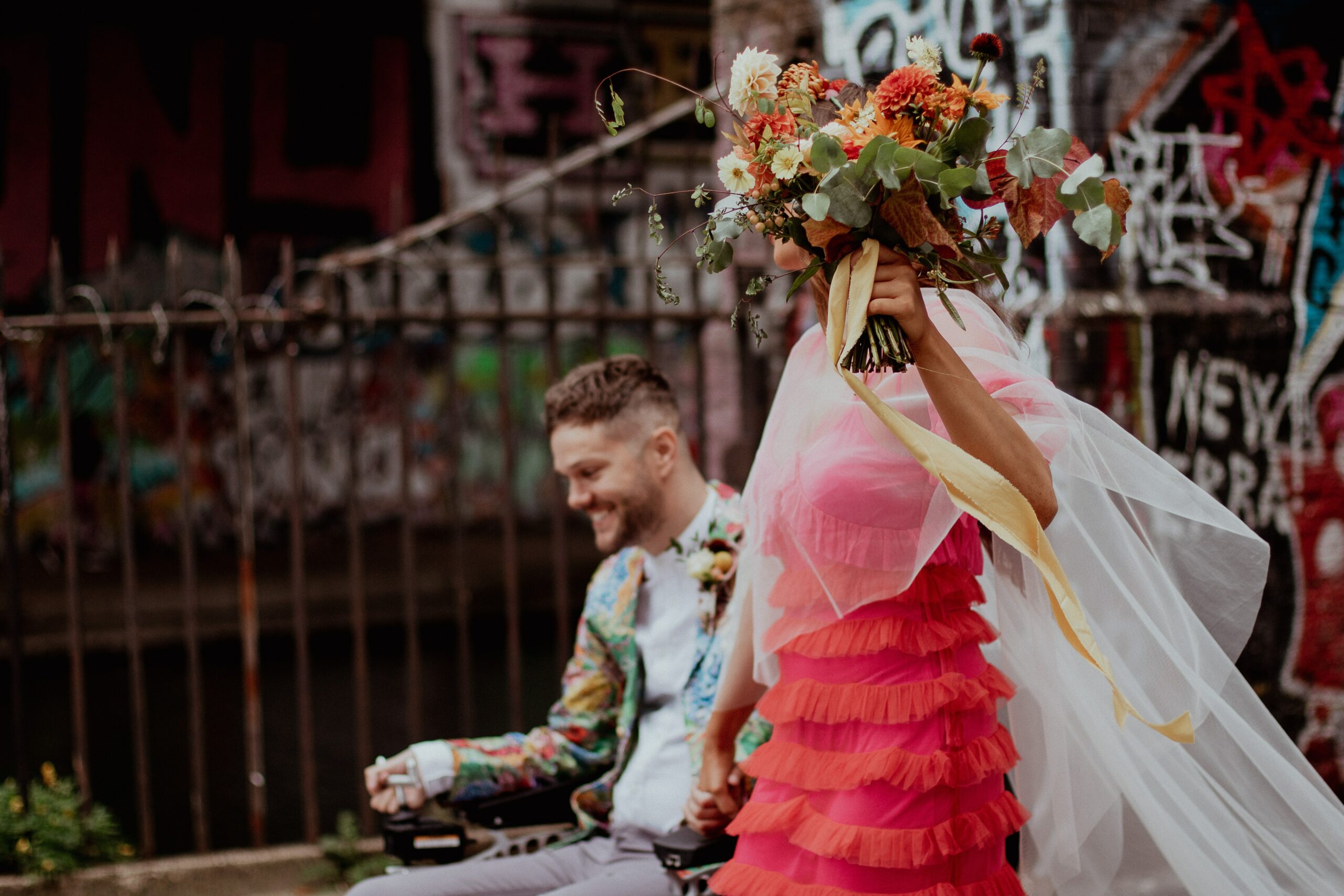Congratulations, you are engaged! Now you get to plan and fund a huge party, field strong opinions from friends and family, and meet expectations society has built up for you since age 4. Is your relationship ready?
When a client shares with me that they are newly engaged, I feel excited – and also nervous for them. Many of the women I counsel have gone from the blissful high of engagement to feeling stressed and overwhelmed after months of planning (and frustrated with their passive partners). What starts as something beautiful between two people who want to make a lifelong commitment to one another can easily turn into a stressful project that even starts to take a toll on the relationship itself.
So what is a newly engaged couple to do? Whether you’ve been married before or it’s your first time, here are some ideas to keep you from getting lost in the woods of today’s wedding culture.
First: What’s Our Why? What Do We Value?
Before you rush to book a venue, first sit down with your partner and have a conversation about what weddings mean to you and what you value most. You could just go to the courthouse, so why are you deciding to have a wedding? Maybe a wedding means highlighting the importance of your commitment, maybe it means welcoming your partner into your larger family, maybe it’s about a new beginning. Getting clear about your “why” will help you to keep things in perspective as you move forward instead of getting lost in worry about judgment from others.
At the end of the day, what will you really remember and value the most? For example, one couple may really value the experience of being surrounded by everyone they know and love; another couple might value having quiet moments together or having a more intimate experience. Be sure to talk about these things together, especially before inviting outside opinions.
Don’t Start Your Marriage With Tired Gender Roles
Women are fed ideas about weddings from a very young age, and they often feel like the responsibility of planning falls on them. At first, this can be exciting and feels harmless. (“He doesn’t have a strong opinion, so it just makes more sense for me to take the lead.”) It can be fun to research venues and vendors. Unfortunately, it also sets the stage for traditional gender roles, particularly in heterosexual relationships, with women carrying the burden of the mental load (ie, planning, keeping track, researching, etc.), even though most young couples today want a modern, equitable relationship.
Start your marriage with a balanced mental load by borrowing some concepts from the Fair Play Method. Before you dive into planning, sit down to talk about the different components that you will need to plan – i.e., venue, photos, music, etc. Talk proactively about which pieces you will each take full ownership of from start to finish. For example, if your fiancé decides that he will take ownership of the task of photos, that would include researching photographers, setting up appointments, scheduling the photos, etc. Your partner will still include you in the planning and consult with you about decisions, but they would ultimately be responsible for ensuring this task gets handled. Don’t forget to talk on the front end about what each task entails and what your joint expectations/standards are.
This will help your fiancé to feel less like an assistant (“Can you call and make an appointment with this photographer that I already did research on?”) and more like a true partner (“I trust you to handle this – let me know when we need to sit down and make decisions together.”) Not only will this set the tone for an equitable relationship, but it will also help you to manage the stress of wedding planning, which should not fall onto one person.
Keep Things In Perspective
Here’s an unpopular opinion: Your wedding day will not be the best day of your marriage, and thank goodness for that! How sad it would be if our best day was behind us? I hope it’s clear from that I want you to be able to truly enjoy your wedding, but I also want you to know it is one of many beautiful moments you’ll share together. You’ll celebrate promotions, maybe you’ll become parents together, you’ll plan retirement adventures together. Weddings are fun and meaningful – but they are one event of many. Don’t let our culture convince you “this is it.”
Plan For Your Marriage
Most couples will spend far more hours planning their wedding than planning for their actual marriage. Consider putting some of your budget towards premarital counseling or attending a relationship class together. Counseling is often a very positive experience for those who seek it out in the first few years of their relationship. You’ll learn about your communication strengths and weaknesses, you’ll understand how your personal backgrounds affect how each of you navigate (or avoid) conflict, and you’ll hopefully establish a relationship with a counselor that you can then contact for guidance as you navigate future life transitions. If counseling or a class isn’t feasible, go to a bookstore together and pick two books on relationships that you’ll read and discuss together.
–
May your wedding day be full of love and warmth, focused on what’s most important to you and your partner, and help set the stage for even more wonderful days to come.


